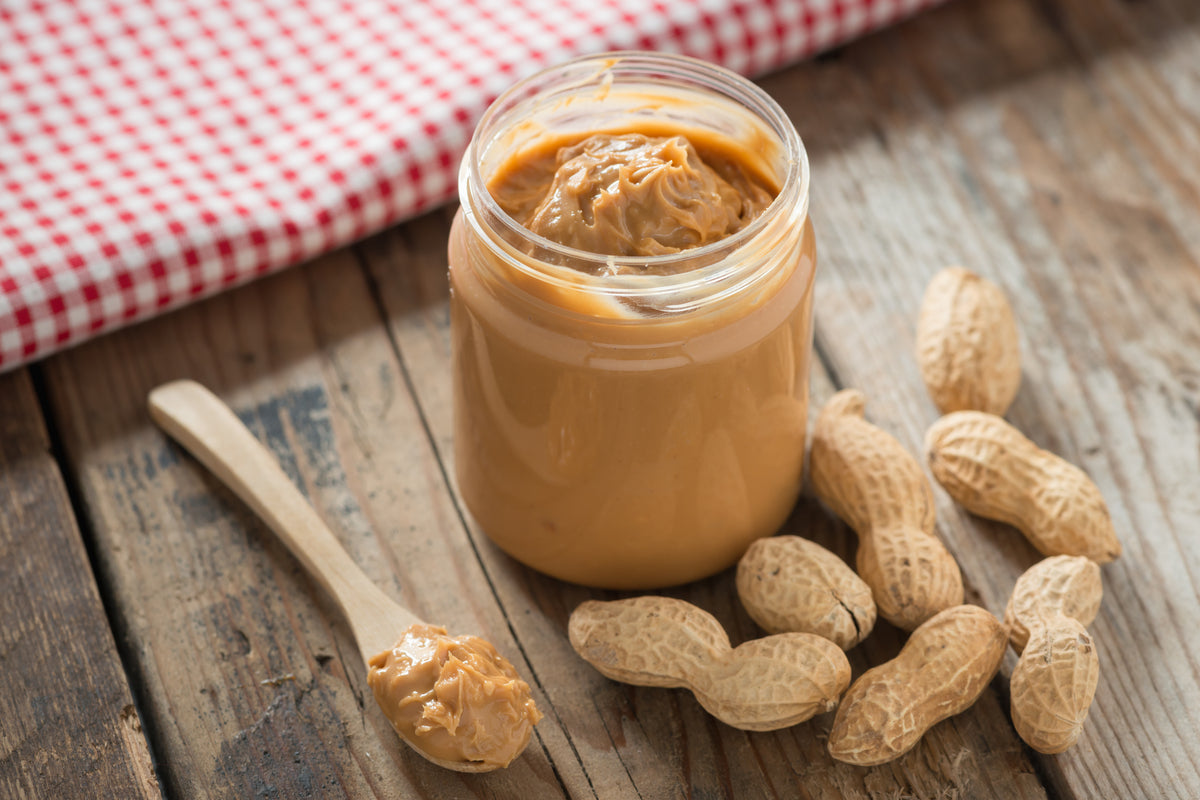
Quick Take
There's no doubt about it - peanut butter is delicious! A favorite with kids and adults alike, peanut butter's been a family staple for generations. But if you're new to a healthy plant-based lifestyle, you may be wondering...is peanut butter healthy? Or is it time to ditch your beloved sandwich spread? Here's what nutrition science tells us.
On This Page
Peanuts in a Nutshell
Is Peanut Butter Healthy?
What's the Healthiest Peanut Butter?
Peanut Butter Healthy Recipes Your Whole Family Will Love
Key Takeaways
Peanuts in a Nutshell

Although technically a member of the legume family, peanuts are commonly grouped with other nuts because their structure and nutritional profile is similiar. In other words, like nuts, peanuts provide a healthy and delicious snack.
Whew! OK, so peanuts are considered healthy! Let's have a closer look.
Peanuts are an excellent source of plant-based protein, fiber, vitamins and minerals, such as magnesium and Vitamin E. And studies indicate that people who consume peanuts have a lower risk of developing Type 2 Diabetes, and are protected against inflammation.
So should you help yourself to those honey roasted peanuts? Probably not. The healthiest peanuts are raw and unshelled because they aren't processed, and the shells and skins actually contain high levels of antioxidants.
But we know, you came here for peanut butter. Do you get the same nutritional benefits as eating raw peanuts when you enjoy it in its most popular form, peanut butter?
Is Peanut Butter Healthy?
Do not let the word “butter” confuse you; peanut butter can be a great addition to your plant-based diet. (Whew! You can let out that sigh of relief now.)
Here's the deal: generally speaking, peanuts can absolutely be part of a health-promoting diet.
However, peanuts and their by-products like peanut butter, should of course be avoided by people with a nut allergy and limited by those who are trying to watch their weight or those with heart disease. Peanut butter is high in fat and extremely calorie dense, containing 2400 to 3200 calories per pound! That said, because it's high in calorie and protein, it's a good option for plant-based athletes looking to bulk up their diet.
What's the Healthiest Peanut Butter?

Peanut butter is delicious! And it's usually pretty popular with the little ones. Smooth or crunchy, it's an easy way to give your whole family healthy fatty acids, fiber, vitamins and minerals essential for a healthy body. But not all peanut butters are created equal.
When it comes to choosing the healthiest peanut butter, look for natural peanut butter that consists of 100% peanuts, without any added hydrogenated oils, sugar, or additives. Better yet, bring out your food processor and whip up your own, homemade natural peanut butter.
And if you need any more reasons to enjoy peanut butter, its manufacturing process protects against aflatoxin exposure. Aflatoxins are carcinogenic compounds, spread by the mold Aspergillus, often colonizing peanuts while they grow underground. Aflatoxin exposure has been linked to a number of severe conditions, but the good news is that processing of the nuts reduces aflatoxin levels by 89 percent.
Peanut Butter Healthy Recipes Your Whole Family Will Love
Eating nuts comes with many healthy benefits, like a lower risk of inflammation, lower cholesterol levels, and high antioxidant activity. And while peanuts aren't technically nuts, the same rules apply. Peanuts are an especially good source of protein, fiber, and vitamins and natural peanut butter, made without oils, sugar, or additives, can be a perfect addition to your weekly family meals.
Looking for family-friendly and vegan peanut butter healthy recipes, beyond your standard PB&J?
Whip up this easy and dairy-free peanut butter chocolate shake or try this refreshing recipe for raw vegan cucumber rolls (dipped in peanut sauce!).
Key Takeaways
- Peanuts are an outstanding source of plant-based protein, fiber, vitamins, and minerals.
- Natural peanut butter, without any added sugar or oil, can be a great addition to your daily meals.
- If you are struggling with weight loss, heart disease, or have a nut allergy, it is best to limit or avoid peanut butter.
**
Rafaela Michailidou is a Vegan Lifestyle Coach, and a freelance health and wellness content writer, with a Plant-Based Nutrition Certificate from the T. Colin Campbell Center for Nutrition Studies.

